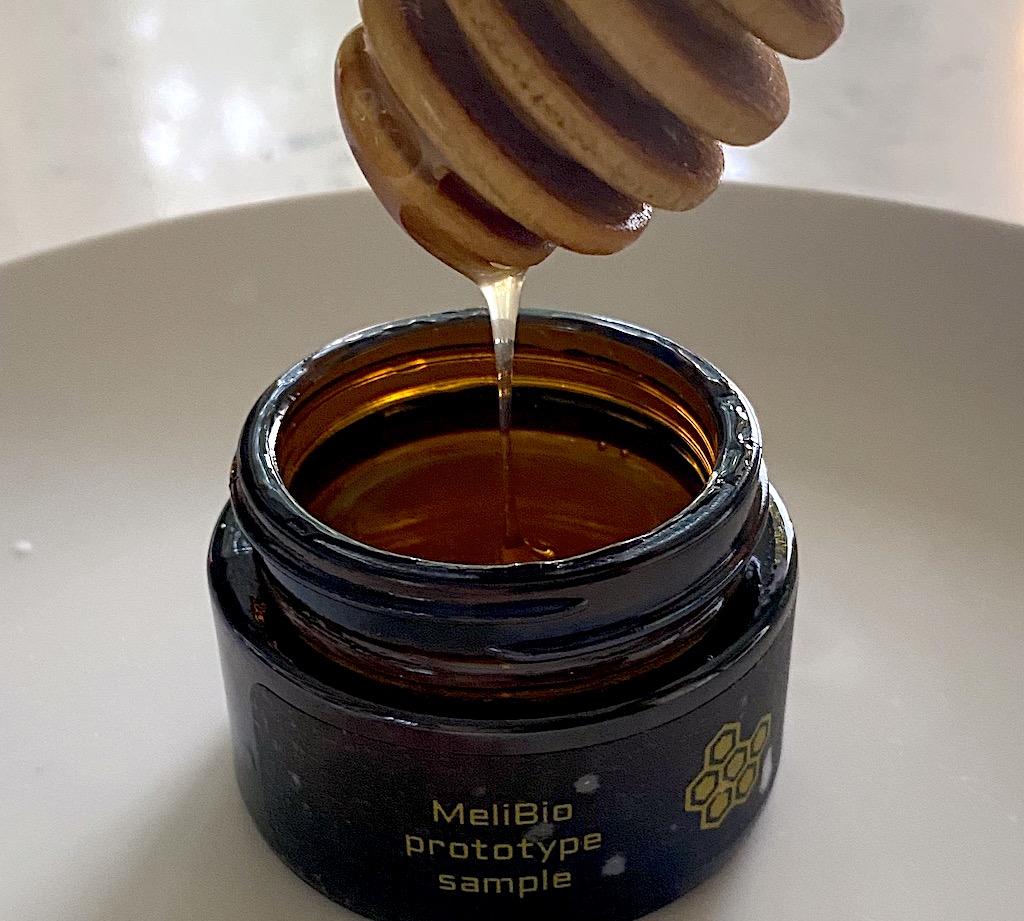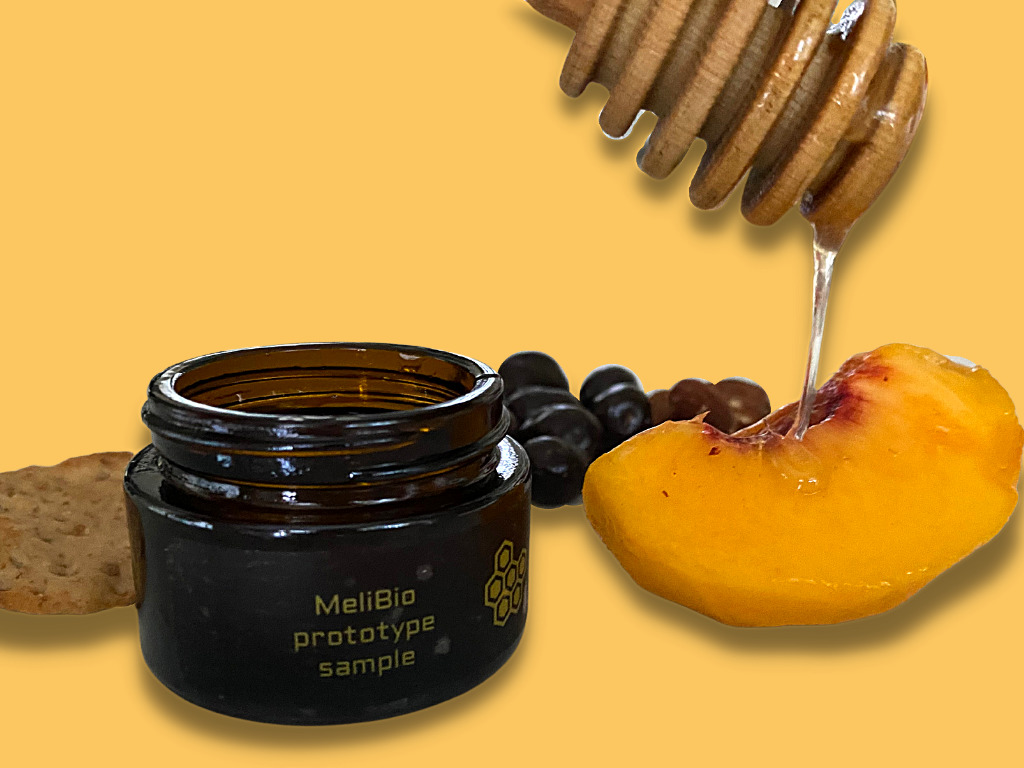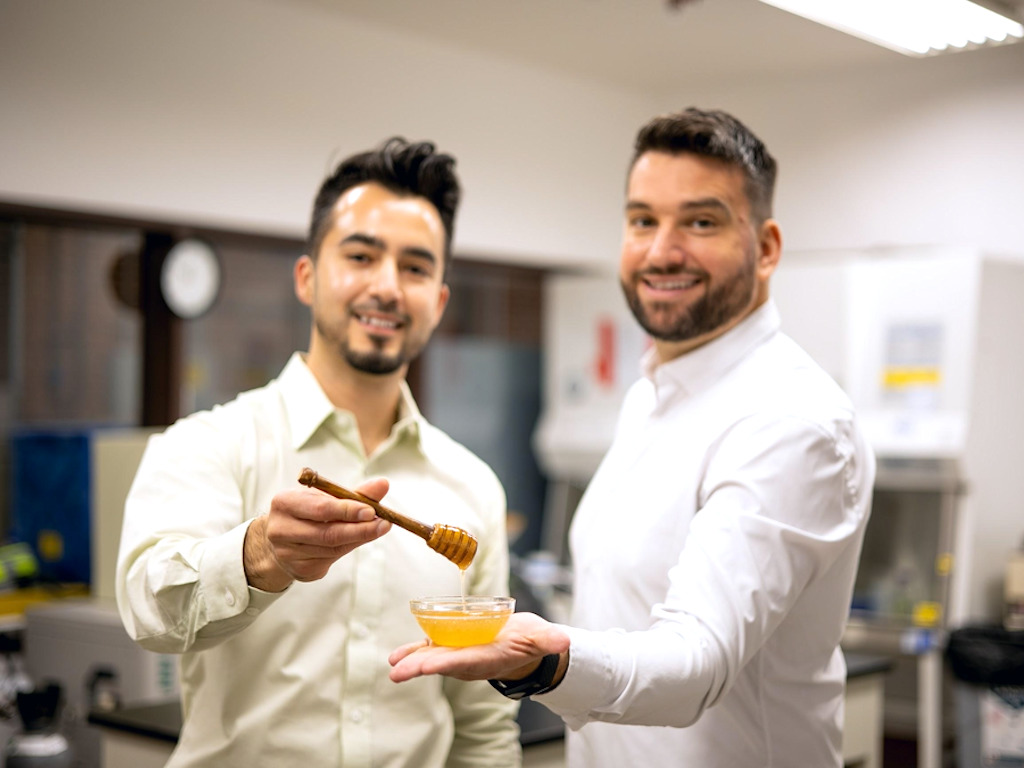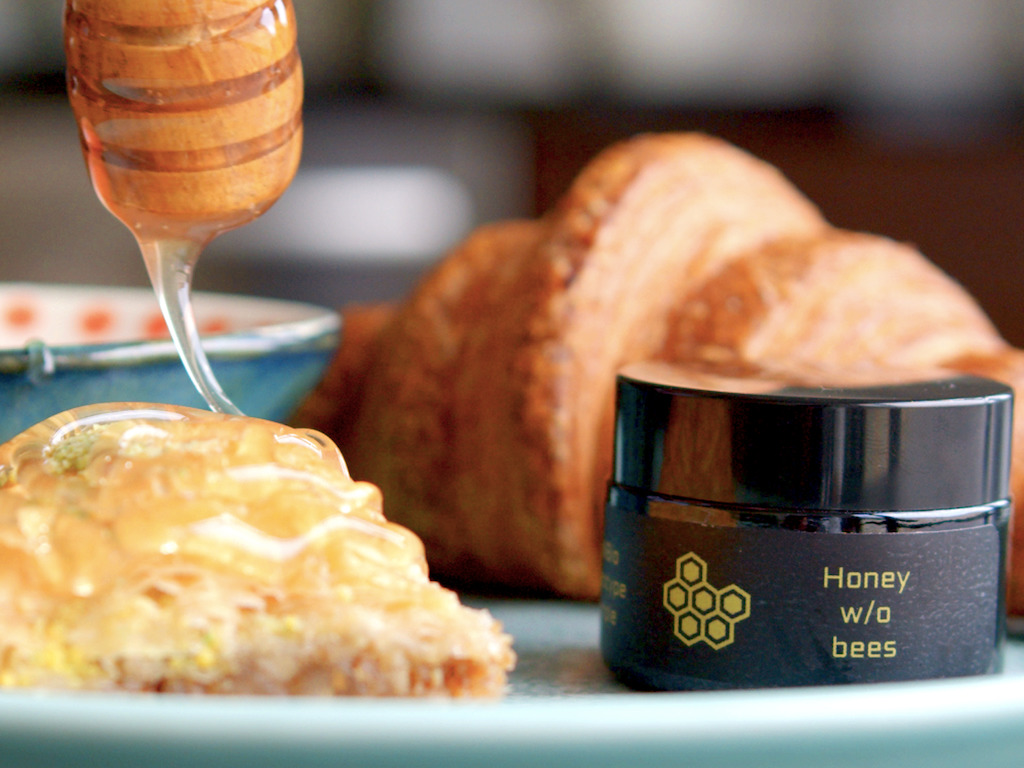Exclusive: We Tasted the World’s First Real Honey Made Without Bees From MeliBio and We Couldn’t Taste the Difference
5 Mins Read
Californian food tech MeliBio has just unveiled its flagship product, the world’s first-ever real honey made without bees. After debuting the product at a private tasting event in San Francisco, MeliBio is now ready to take orders from foodservice businesses and ship out its bee-free honey by the end of the year.
MeliBio has just launched the world’s first real animal-free honey, made without any bees. Using synthetic biology, the company is able to replicate real honey down to the molecular level, but without the need to harm the planet’s essential pollinators. The Berkeley, California food tech unveiled its flagship product at a private tasting attended by 100 other investors and climate and food tech community members in the Bay Area.
Real honey without bees
Just months after closing its pre-seed round earlier this year, which attracted investors like Big Idea Ventures, Joyance and Sustainable Food Ventures, MeliBio has managed to race ahead with its R&D and scale its proprietary bee-free honey manufacturing method.
The company uses synthetic biology, precision fermentation and plant science to create molecularly identical honey. That means honey with the same health benefits and delicious taste that consumers love, but without the environmental harms associated with commercial honey production.
At the sampling event organised by Bay Area incubator Cell Valley Labs, attendees were able to be among the world’s first to taste the first-of-a-kind animal-free honey developed by MeliBio. Green Queen Media’s Los Angeles-based Alessandra Franco was sent a pre-event sample to taste MeliBio’s honey, and she described the product as groundbreaking: “You can’t compare this to maple syrup or agave. You can only compare it to honey because it tastes, drips and spreads 100% like honey made from bees. This is revolutionary for sure.”
“I grew up eating honey because my mom was obsessed with it. People would bring her “pure honey” whenever they went somewhere famous for its honey production.”
“I know my honey and I know what honey is supposed to taste like, this is it. Once you’ve tried MeliBio you can’t ever go back to any other type of vegan honey. It’s bee-free, cruelty-free and pretty fabulous. Can I give it more than 2 thumbs up?”

MeliBio is open for orders
Having successfully scaled its technology, MeliBio says it is now open for B2B orders for foodservice clients to use its real honey without bees as a plant-based ingredient alternative, with deliveries expected to start by the end of 2021.
“Honey is an ingredient found in every product category, from food to beverage and personal care products for which MeliBio is now providing a plant-based option,” shares co-founder and CEO Darko Mandich. “By bringing delicious, nutritious, and real honey made without bees to the market, we are shaping our present and future in a way that is better for bees and for humans.”

Earlier this year, The Single Origin Food Co (Sofco) closed a US$1.1 million seed funding round for their sustainable Vegan Un-Honey made from vegan ingredients including organic plants, fruits, purified water, alumroot and raw sugar. The product is also fortified with organic flower pollen. While vegan honeys like this can mimic the texture of bee honey, they are limited when it comes to taste. They can make it sweet, but it’s hard to replicate the complexity of flavors you get from a batch of honey that comes from the flowers and plants the bees pollinate. This is where Melibio wins, as the company is able to offer those layers of flavor. As Alessandra says: “The taste definitely reminds of clover honey, not as floral as orange blossom, but clover notes for sure. I thought Vegan Un-Honey was pretty good but now I can’t go back.”
Bees and global food security
A future without bees could mean huge food shortages globally and their potential extinction is a matter of international food security. For years now, biodiversity experts and activists have been sounding the alarm about the continued decline in bee population due to habitat destruction, widespread toxic pesticide use, and the climate emergency. Bees and other pollinators are responsible for one-third of the world’s agricultural crops; according to the Food and Agriculture Organization (FAO), their unpaid labor contributes between $235 billion and $577 billion to our global food production.

Mandich co-founded MeliBio in 2020 with Aaron Schaller to take aim at the lucrative US$9 billion honey market and its destructive impact on the 20,000 wild and native bee species essential to our planet’s flora and fauna, not to mention address the exploitative nature of honey beekeeping- a major reason why vegans eschew it.
While alternative protein companies have typically focused on meat and dairy substitutes, alternative honey remains a white space in terms of innovation, keeping vegans who avoid the bee-derived product due to ethical and environmental reasons relying on maple syrup or blackstrap molasses.
MeliBio is now proud to be able to offer an alternative that stands up to real honey. “Scientific advancements have created a very exciting position where humans can finally make one of their favorite foods without the use of animals,” says Mandich.
Other companies that are using fermentation to disrupt entire categories include Berlin-based QOA, which is pioneering cacao bean-free chocolate, and San Francisco-located Compound Foods‘ beanless coffee.
Lead image courtesy of MeliBio.




